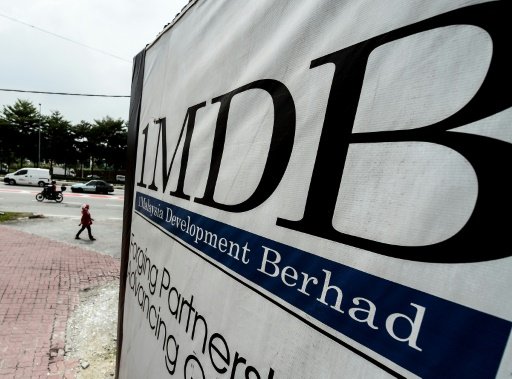
File Photo -AFP
KUCHING: The recent news of 1Malaysia Development Bhd (1MDB) failing to meet its US$602.7 million repayment seems to have spooked foreign investors as industry analysts’ report net outflow in foreign holdings of Malaysian government bonds across the board in July.
In a report from the research arm of Kenanga Investment Bank Bhd (Kenanga Research), foreign holdings of Malaysia’s government bonds in July fell for its second consecutive month at RM2.3 billion with outflows led by Bank Negara Malaysia (BNM) notes at RM1 billion, followed by Malaysian government securities (MGS) by RM0.7 billion, and government investment issues (GII) at RM0.7 billion.
GII experienced the worst outflow as it declined to a 16-month low of 7.4 per cent in July.
As to what has triggered these large outflows, the research said the recent negative news flow on the 1MDB situation could have further spooked foreign investors.
“While the US Fed rate hike in June could have been the main reason for June’s net bonds outflows, the bigger outflows in July could have been triggered by investors’ concerns of 1MDB’s inability to meet it large debt repayment obligation to its creditor,” explained the research arm.
To recap, 1MDB failed to make a US$602.7 million repayment to its Abu Dhabi creditor, the International Petroleum Investment Company (IPIC), on July 31, 2017.
IPIC has since given 1MDB a deadline extension to August 31, 2017 in order to meet its repayment.
Should 1MDB default on its repayment again, Kenanga Research said the situation would further erode foreign investor’s confidence towards Malaysia government bonds and exacerbate the risks of capital outflow from Malaysia.
“Although for now there seems to be no imminent threat to a major foreign funds outflow given the 1MDB had managed to partially settle a portion of the debt, the market would now be extra vigilant and sensitive to any domestic development related to 1MDB.
“Despite the large outflows however, not everything is doom and gloom, as outflows for July were still at manageable levels.
“To put things in perspective, government securities record the worst outflows for the year in March, totalling RM26.2 billion,” said the research arm.
Additionally, the ringgit also seemed to be unfazed by the bond outflows as Malaysia’s foreign reserves rose by US$0.5 billion to US$88.4 billion at the end of July – a sufficient level to financial 7.98 months of retained imports and 1.1 times of short-term external debt.
“The central bank’s effort to build up a larger buffer of reserves could partly be attributed to a steadier ringgit,” explained the research arm.
Year to date, the ringgit has appreciated 4.4 per cent against the US dollar which was indicative of the resilience of the financial market despite some concerns of the risks of capital outflows.
“We believe the ringgit strength is increasingly leaning on improving fundamentals,” ut added. “Going forward, this would help support the ringgit to gradually appreciate.
“Our year-end target for the US dollar to ringgit is 4.15.”
Meanwhile, the Malaysian equity market saw a very different scenario as it continued to experience uninterrupted monthly capital inflows since the beginning of the year as foreign net buying of local equity in July surged to RM8.3 billion while year to date inflow is current at RM10.7 billion as at the end of August 11, 2017/
According to Kenanga Research, this optimism in Malaysian equities will offset the RM19.32 and RM2.7 billion foreign outflows registered in 2015 and 2016 respectively.
